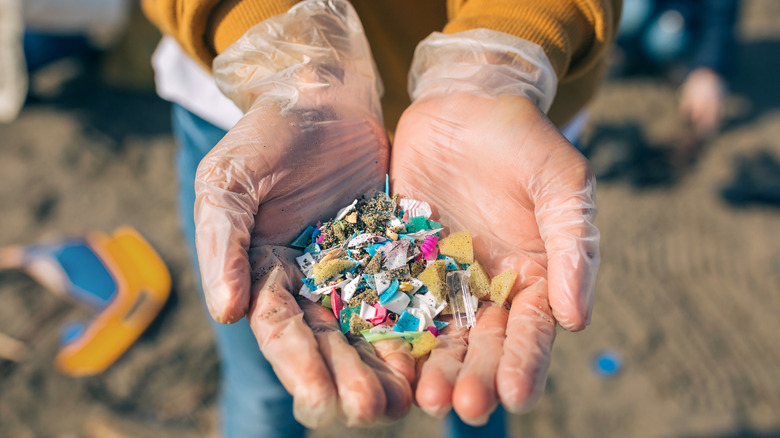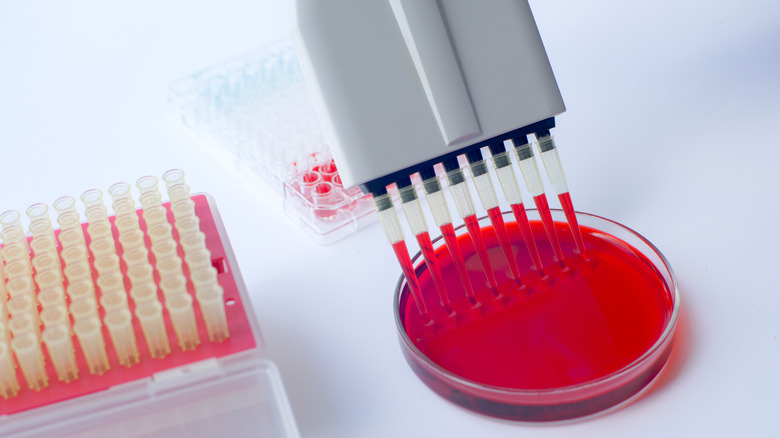Microplastics Have Been Found In Human Blood For The First Time
Over the years, microplastics — a term used to describe tiny specks of plastic measuring less than 5 millimeters across — have been detected by scientists both in the environment as well as in everyday food items (via Nature). From mountains to oceans to table salt and drinking water, microplastics have become a growing concern for researchers due to their potentially harmful effects on human health.
The greatest concerns stem from the chemical additives found in plastic, such as BPA, antimony, and phthalates, among numerous others (via International Journal of Environmental Research and Public Health). Many of these chemicals have been linked to various health conditions including cancer, reproductive disorders, neurodevelopmental disorders, hormone disruption, and respiratory issues.
Previous scientific studies have detected the presence of microplastics in human fecal matter — with troublingly high amounts found in the feces of babies in particular (via The Guardian). Now, for the first time, a breakthrough study published this week in Environment International has uncovered the presence of microplastics in human blood samples.
Plastic particles from everyday items found in blood
Scientists conducting the study evaluated donated blood samples from 22 healthy adult volunteers in the Netherlands. Out of the 22 volunteers, 17 were found to have plastic particles derived from beverage containers, utensils, food wrapping, and plastic bags in their blood (via WebMD). Of the top three chemicals detected, PET was found most frequently in half of all the blood samples collected. Thirty-six percent of the samples contained polystyrene commonly used in food-service industry disposables, and over 20% of samples contained polyethylene, which is used in grocery and garbage bags. The Guardian reported that some blood samples were found to have a combination of plastics.
"The particles are there and are transported throughout the body," Professor Dick Vethaak, an ecotoxicologist at Vrije Universiteit Amsterdam in the Netherlands, told The Guardian. In light of these concerning results, the study has raised additional questions among researchers who now turn their attention to what the long-term health effects of microplastics in the body might be.
Professor Vethaak told The Guardian, "The big question is what is happening in our body? Are the particles retained in the body? Are they transported to certain organs, such as getting past the blood-brain barrier? And are these levels sufficiently high to trigger disease? We urgently need to fund further research so we can find out."


